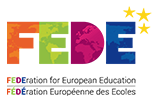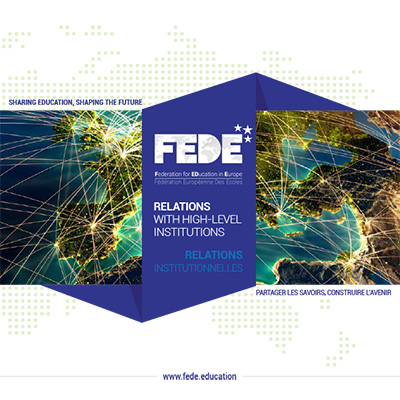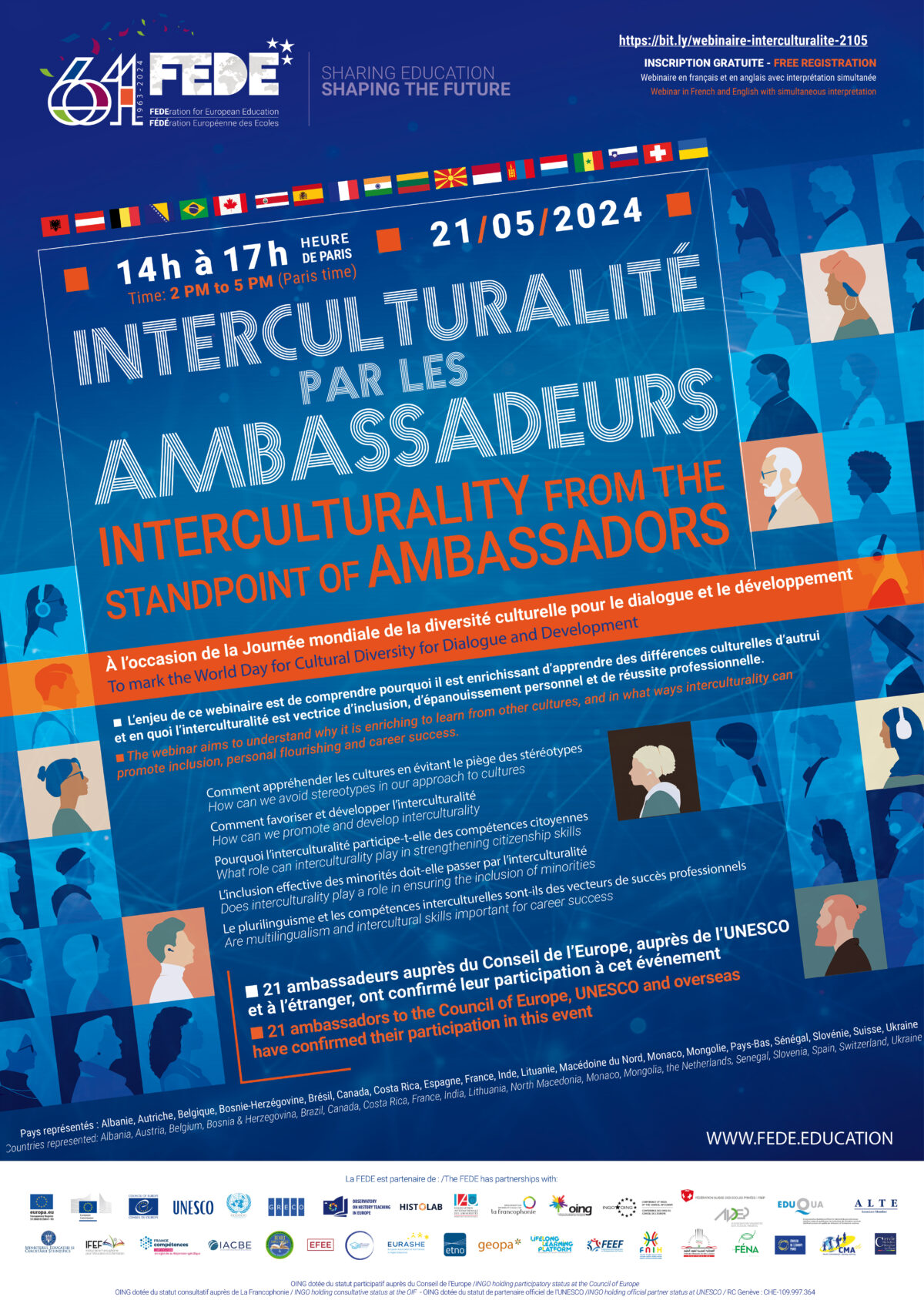The Group of States against Corruption (GRECO) is a specialised Council of Europe (CoE) entity founded in May 1999 to improve the capacity of Member States to fight corruption. It aims, via a dynamic evaluation process and mutual peer pressure, to ensure that countries uphold CoE anti-corruption standards. GRECO works to identify shortcomings in national anti-corruption policies and encourages states to introduce legislative, institutional and practical reforms where necessary. GRECO has 50 Member States, of which 46 are Council of Europe members. Other members include Belarus, Russia, the USA and Kazakhstan.
From 2017 to 2019, GRECO and ethe FEDE jointly developed an innovative teaching module to raise higher-education students’ awareness of corruption and the need for anticorruption measures. The anti-corruption module forms part of the FEDE’s European Culture and Citizenship certificate and is consequently taken, first and foremost, by all students enrolled in FEDE European bachelor’s degrees. The aim of the module is to train future citizens to identify and combat corruption. It will help them to act in good conscience if they are faced with corruption during their future careers in the public or private sectors. The initiative, which falls under the heading of civic education, will help to develop well-informed, committed and democratic societies of young people, encouraging our learners to implement ethical governance and participate constructively in democratic life.
History of GRECO-FEDE Corporation
The initiative is aligned with the values of both the FEDE and GRECO. In June 2017, the FEDE’s Chairwoman Claude Vivier Le Got and Rinaldo Rosso, the member of the FEDE’s Committee in charge of European affairs, met with the General Secretary of GRECO Gianluca Esposito, who indicated that GRECO wished to develop closer links with the education sector and requested the FEDE’s support. The FEDE and GRECO decided to combine their expertise in order to strengthen anti-corruption education. During 2018, a GRECO expert worked with the FEDE’s education team to produce an awareness-raising course on ‘corruption and anti-corruption legislation’. In that same year, the FEDE modified all of its bachelor’s-level programmes so as to incorporate the new anti-corruption module and develop corresponding testing procedures. Thanks to a great deal of hard work and the efficiency of the FEDE’s member institutions, the new course was included in the FEDE European Culture and Citizenship certificate (Unit CU A2) as early as September 2019. The course is therefore now an integral part of the FEDE’s 100 or so bachelor’s degrees.
Aim of the innovative educational course
The GRECO-FEDE module raises the awareness of thousands of learners with respect to corruption, existing efforts to combat corruption in all its forms and the institutional actors involved. The overriding aim is to have learners appreciate that all forms of corruption present a threat to the rule of law and democracy. The course helps students better understand the social, economic and political impact of anti-corruption initiatives implemented by certain countries and European institutions. It will help to further the FEDE’s goal of promoting the European and universalist values of democracy, human rights and the rule of law in Europe and beyond.
Overview of the GRECO-FEDE partnership
The FEDE-GRECO project is a concrete example of successful cooperation between a civil-society association and an international organisation. Since the beginning of the 2019 academic year, the GRECO-FEDE course has been taught in 150 FEDE-member institutions. Since October 2019, 22 163 FEDE bachelor’s students at 204 member institutions across 15 countries have taken the course: Algeria, Belgium, Burkina Faso, Cameroon, Congo, Djibouti, France, Gabon, Ivory Coast, Luxembourg, Morocco, Romania, Senegal, Spain and Switzerland. The average age of students taking the course is 22. The test evaluating student’s knowledge of the European Culture and Citizenship module, which includes questions on the GRECO-FEDE course, has a duration of 40 minutes and consists of 40 multiple-choice questions, of which five focus on corruption. The pass rate for the examination is 72%, with a pass rate of 75% on the five questions concerning corruption. In 2019, the examination was based on a pool of 30 questions on corruption. In 2021, the FEDE wished to enlarge this pool of questions with the assistance of experts from GRECO. In response to our request, 20 additional questions were provided by the GRECO Secretariat, having been endorsed by the President of GRECO Mr Marin Mrcela (a judge at the Croatian Supreme Court). The aim of expanding the bank of questions is to improve the academic knowledge of students on corruption -related issues.
Very encouraging outcomes
We have had excellent feedback on the module, both from students and teachers. Indeed, the course combines theory, the study of existing law and concrete examples of work carried out at the European level to combat corruption. The GRECO-FEDE module is an innovative teaching module that has raise the awareness of several thousands of learners as to the fight against corruption. It will be taken by tens of thousands of additional students in upcoming years. In many higher-educational institutions and training centres, there is little teaching content to raise students’ awareness of the need to combat corruption. FEDE member institutions have therefore been provided with precious teaching content for their teachers and students.
In the GRECO’s 2020 General Activity Report, GRECO President Marin Mrcela underlined the importance of the constructive cooperation between GRECO and the FEDE that led to the development of the course: “I wish also to mention the pioneering education module on anti-corruption we have developed with the “Federation for EDucation in Europe” (FEDE), an INGO with participatory status with the Council of Europe. The module forms part of FEDE’s course on European Culture and Citizenship and is being taught across FEDE’s network of higher and vocational educational institutions at 150 higher and vocational institutions in Belgium, France, Spain, Switzerland and Luxembourg (as well as various institutions in Morocco, Algeria, Ivory Coast, Senegal, Burkina Faso, Gabon and Congo). By end 2020 more than 3 000 students had taken the course and corresponding exam at bachelor’s level. The module allows students to understand the social, economic and political impact of corruption, familiarising them with different forms of corruption, its causes and consequences, measures to fight corruption and international standards. I encourage all our member state governments to make use of this module and to devote due attention in schools to the need to fight corruption.”
You can find this passage on p.7 of GRECO’s 2021 General Activity Report, which can be downloaded here: https://www.coe.int/en/web/greco/documents/general-activity-reports
GRECO remains committed to working with the FEDE: in its 2021 General Activity Report, published on 1 June 2022, the President of GRECO again refers to the FEDE-GRECO project: “I have continued to contribute content to the pioneering education module on anti-corruption we have developed with the ‘Federation for EDucation in Europe’ (FEDE), an INGO with participatory status with the Council of Europe. This module forms part of FEDE’s course on European Culture and Citizenship and is being taught across FEDE’s network of higher and vocational educational institutions. Indeed, education is one of the strongest tools for preventing and fighting corruption. It should start as early as possible and be embedded in the educational systems in every country.”
You can find this passage on page 6 of the GRECO’s 2021 General Activity Report, which can be downloaded here: https://www.coe.int/en/web/greco/documents/general-activity-reports
Finally, during the most recent FEDE General Assembly, held in March 2022 in Dubrovnik, Croatia, the President of GRECO addressed the FEDE’s member institutions and thanked them for the successful FEDE-GRECO partnership. He also said that he wished the topic of corruption to be raised among students from a young age, arguing that it should be included in educational curricula at schools, secondary schools and sixth-form colleges. Given that 20 or so FEDE members offer primary and secondary programmes, the FEDE plans in the short term to produce a GRECO-FEDE course for younger pupils. You can watch Mr Mrcela’s General Assembly speech by following this link: https://youtu.be/VQZNwmNtpDI


